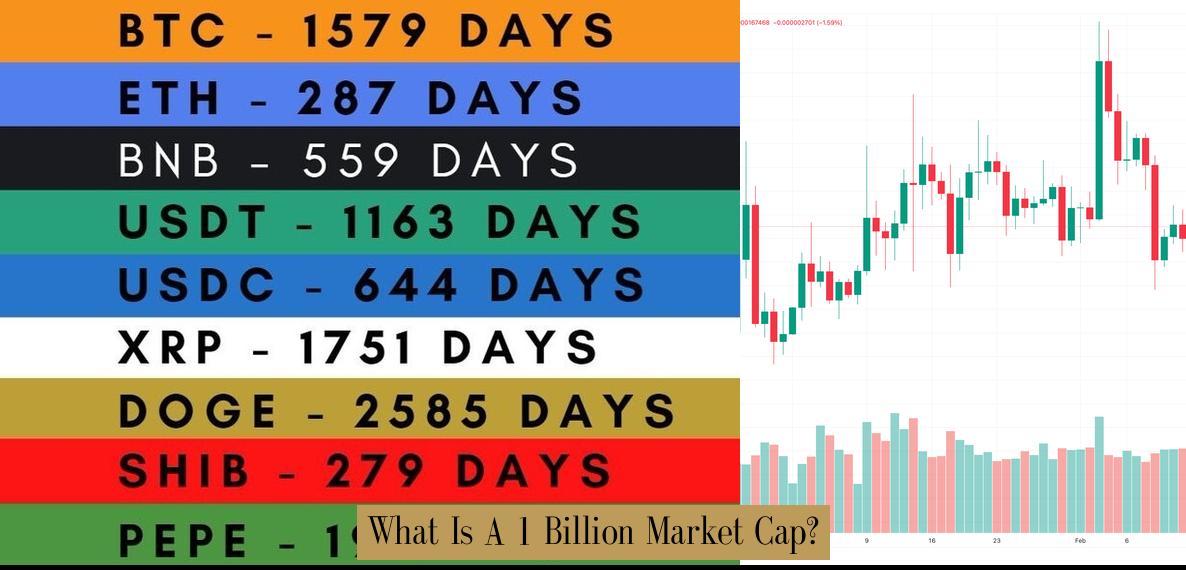What is a 1 Billion Market Cap? (And Why It’s Not As Impressively Huge As It Sounds)
So, you’re browsing the internet, maybe reading about the latest stock market craze, and you see this magical number: $1 billion market cap. You think, “Wow, that company must be HUGE!”
And you’re not entirely wrong. A $1 billion market cap is a pretty hefty sum. But, let’s get real here, folks. The world of finance is full of big, flashy numbers, and sometimes, those numbers can be a bit misleading. So, let’s dive into the world of market caps and see what a $1 billion market cap actually tells us about a company.
What Exactly is Market Cap?
Think of it like this: Market cap is the total price tag for all the shares of a company, if you were to buy them all at once. It’s basically the value of the company as perceived by the stock market.
The formula is simple:
Market Cap = Current Share Price * Total Number of Shares Outstanding
Let’s say a company has 10 million shares outstanding, and each share is trading at $100. Their market cap is $1 billion (10 million shares * $100/share = $1 billion). Easy peasy.
Why Does Market Cap Matter?
Market cap is a bit like the weight class of a company. It helps investors understand the size and scale of a company. Here’s how it can be helpful:
- Comparing apples to apples: You wouldn’t compare a tiny startup to a Fortune 500 company in terms of revenue, right? Market cap helps you compare companies in the same ballpark.
- Identifying potential investments: Knowing a company’s market cap can give you a sense of its potential growth. A smaller company with a smaller market cap might have more room to grow compared to a giant corporation.
- Assessing risk: Larger companies with high market caps are generally considered less risky than smaller companies. Why? Because they’re more established and have a stronger track record.
So, What Does a $1 Billion Market Cap Tell Us?
Here’s the thing: a $1 billion market cap doesn’t automatically mean a company is a financial powerhouse or a guaranteed winner. It’s just a snapshot of the company’s value at a particular point in time.
Think of it this way: a $1 billion market cap could represent a company with:
- A small number of shares trading at a high price: Maybe it’s a hot new tech startup that everyone is excited about.
- A large number of shares trading at a lower price: This could be a well-established company, but it might not be growing at a rapid pace anymore.
The Importance of Context
To truly understand the significance of a $1 billion market cap, you need to consider the context:
- Industry: A $1 billion market cap in the tech industry might be considered small, while in the oil and gas industry, it could be quite substantial.
- Growth stage: A young, rapidly growing company with a $1 billion market cap could be considered a potential unicorn, while a mature company with a similar market cap might be seen as stagnant.
- Financial performance: A $1 billion market cap doesn’t guarantee strong profits or a healthy balance sheet.
- Debt levels: A company with a high debt load could have a lower intrinsic value even if its market cap is high.
The Bottom Line: Don’t Be Fooled by Big Numbers
Market cap is a useful metric for understanding a company’s size and value, but it’s just one piece of the puzzle. Don’t get blinded by those big numbers. Always do your research, consider the context, and look beyond the market cap to get a complete picture of a company’s financial health and potential.
Think of it this way:
A $1 billion market cap is like a fancy car. It might look great on the outside, but what really matters is what’s under the hood.
So, the next time you see a company with a $1 billion market cap, don’t just assume it’s a winner. Dig a little deeper and see what’s really happening behind the scenes. You might be surprised by what you discover.
